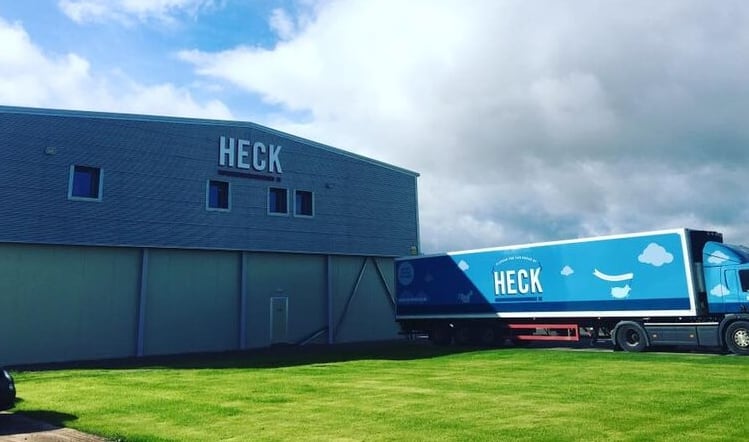The East of Scotland Growers (ESG) group has estimated it will have scrapped 3.5 million heads of broccoli and 1.9 million heads of cauliflower so far as a result of the labour crisis. In an online blog posted last week, ESG managing director Andrew Faichney said the issue was compounded by the lack of lorry drivers required to distribute the produce.
The problems would 'have a devastating impact on this year’s production' said Faichney. "But of possibly even greater concern is that I am not sure where we see the end of the problems – therefore losses will continue to accumulate." Ignoring harvesting, haulage, and packaging, the losses carried a direct growing cost of somewhere in the region of £1.1m, he added.
"We were unable to provide the oversupply of vegetables to the freezing industry as the pea season was in full flight. We should have started our freezing production last weekend but, as yet, we haven’t frozen a single floret of broccoli. The delay in freezing is a result of a lack of lorries to haul frozen product out of freezer stores to retail depots. With a shortage of lorries, retailers are prioritising short shelf-life products - the net result being storage is now at capacity, and there is nowhere to store processed product.
On-farm labour issue
"The haulage issue looks likely to remain, which is fundamentally driven by labour availability. Of even greater significance is the on-farm labour, with around 80% of the required workforce on farm, workers have been earning above budget income due to level of overtime required.
"The fear is that these workers will head home earlier than required due to reaching their own financial target. They are actually starting to disappear off farm already, where historically we have relied on workers finishing the fruit season and migrating over to field veg in the months of September and October."
Unions and trade bodies have joined a groundswell of voices pressing the Government to introduce immediate measures to tackle the situation.
Measures called for include
- the introduction of a 12-month COVID-19 recovery work visa to deal with immediate pressures and allow employers to expand recruitment to EU and other overseas workers;
- an urgent review by the Migration Advisory Committee on the needs of the agricultural, food and drink sectors;
- a review of the Seasonal Workers Pilot scheme and its replacement with an improved permanent scheme for farm businesses and seasonal migrant workers;
- the addition to the Shortage Occupation List of skilled workers that cannot be replaced overnight, such as butchers and HGV drivers, enabling migrants with such skills to get visas.
NFU Scotland president Martin Kennedy said similar effects were being felt by many farmers: “I urge the UK Government to act. The concerns that I raise on behalf of farmers in Scotland are echoed by farming, food and drink organisations across the UK. I am in no doubt that without action, the current disruption will only worsen."
The crisis is being felt at all levels and goes well beyond a lack of seasonal workers. Last month, a report launched by Grant Thornton estimated a shortfall of 500,000 workers across the food industry, including processing.
Commenting on the launch of the report, Richard Harrow, chief executive of the British Frozen Food Federation said: “Labour shortages throughout the food supply chain are creating a ‘perfect storm’ of increasing costs for our members. Whilst the long-term solution is to train more UK nationals, we will only avoid further disruption to food supplies and inflationary cost increases by taking the temporary visa measures this report is recommending.”
Food and Drink Federation chief executive Ian Wright said that 'without fast action the labour challenges will continue'. "If they do, we can expect unwelcome consequences such as reduced choice and availability for consumers, increased prices, and reduced growth across the domestic food chain.”
End of furlough not solution
National Farmers Union vice president Tim Bradshaw said: “It is simplistic to argue that the end of furlough will see many more people meeting this shortfall, but furloughed workers are concentrated in urban areas and not where many agri-food roles are located. A solution to this crisis will need the right people with the right skills and training available in rural areas where many roles are based.
“A short term COVID Recovery Visa, alongside a permanent Seasonal Workers Scheme, would be an effective and, frankly, vital route to help the pressing needs of the industry today. It would also give us time to invest in the skills and recruitment of our domestic workforce, helping to provide long-term stability so we can recruit the people we need to continue to deliver quality, nutritious and affordable food for the nation.”
Food Manufacture skills webinar
Food Manufacture is holding a free webinar, sponsored by Aptean on 9 September from 3pm to 4pm UK time entitled How to boost food manufacturing productivity in a skills crisis. Sign up now to hear key experts, including Andrew Brodie, people and communications director at Avara Foods, and Phil Barnfather, HR director - operations at Greencore offer advice and support.




